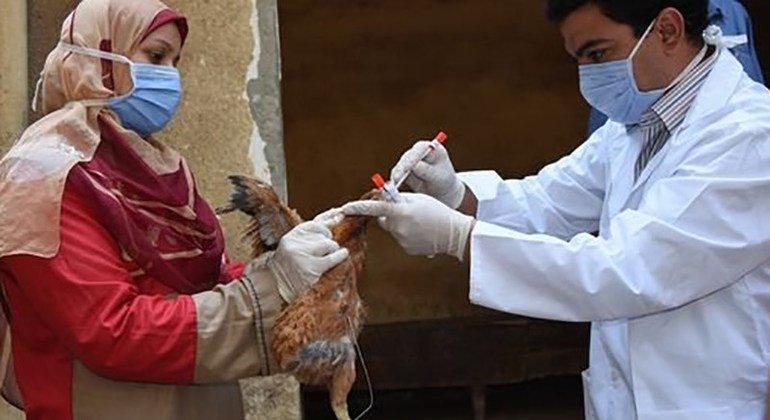In an update on the mutating virus – known as H5N1 – Dr Madhur Dhingra of the Food and Agriculture Organization (FAO), said it had “spread to the wildlife”.
More than 500 species of birds have been infected, along with at least 70 species of mammals, including the California condor and the endangered polar bear.
In regions that rely heavily on poultry as their main source of protein, the FAO doctor insisted that avian flu “poses a serious threat to food and nutritional security.”
Economic damage
Dr Dhingra warned that the livelihoods of hundreds of millions of people have been affected by the virus – an economic burden on farmers that could prevent them from investing in adequate biosecurity measures.
Following the emergence of the H5N1 influenza virus in dairy cattle, WHO has joined calls for increased surveillance and biosecurity on farms to ensure the safety of animals and people.
The United Nations health agency said that in 2024, 76 people were infected with the H5 strain of bird flu, and most were agricultural workers. More than 60 cases originated in the United States, which has also reported outbreaks of H5 in wildlife and poultry and, more recently, in dairy cattle.
Cases have also been reported in Australia, Canada, China, Cambodia and Viet Nam.
Low risk to humans – for now
Dr Maria Van Kerkhove, who is currently Director of Epidemic and Pandemic Threat Management at WHO, said that based on the latest scientific knowledge, “we assess that the risk of infection to the public – you and me – is currently weak.”
But if you work on a farm, she warns – and are exposed to infected animals – “we assess the current public health risk as low to moderate,” depending on the level of personal protection adopted.
There is no evidence so far that H5N1 viruses have adapted to spread from person to person and no cases of human-to-human transmission have been reported.
No room for complacency
“We must remember, however, that this can change quickly,” added the UN pandemic expert, “as the virus evolves and we must prepare for such a scenario.”
Each case occurring in humans must therefore be thoroughly investigated.
Dr Van Kerkhove also stressed the importance of drinking pasteurized milk – and if this is not available, warming the milk before consuming it.
“We wish to reiterate the critical importance of using a One Health approach across all sectors – at global, national and subnational levels – to effectively combat avian influenza and minimize the risk to animals and humans,” she concluded.




